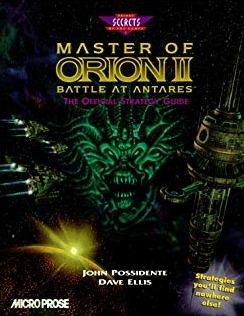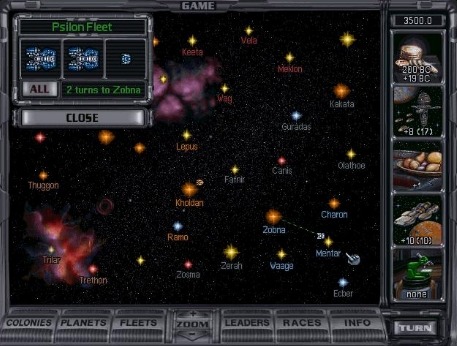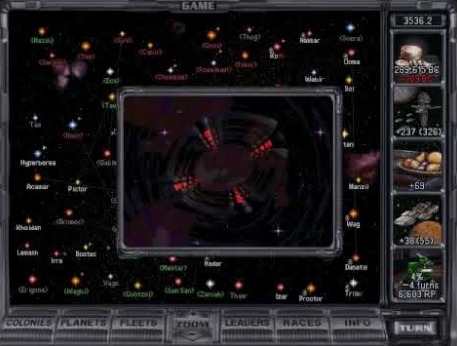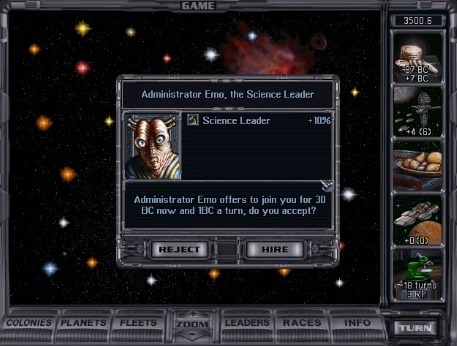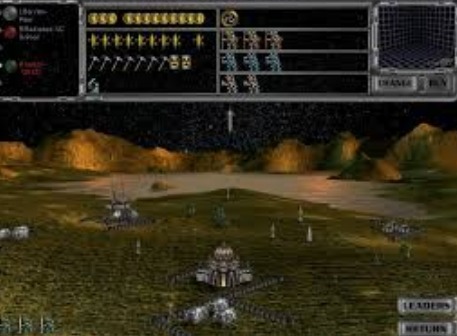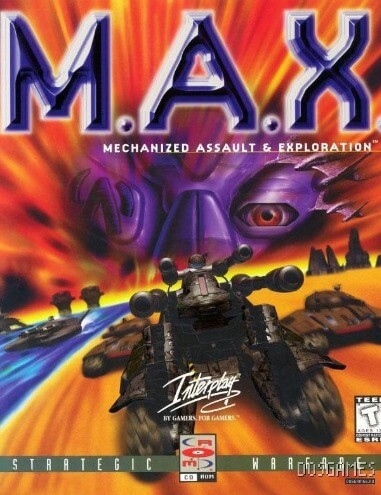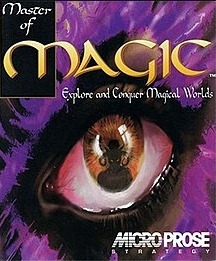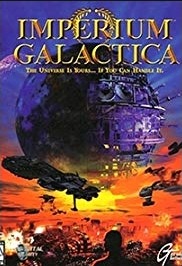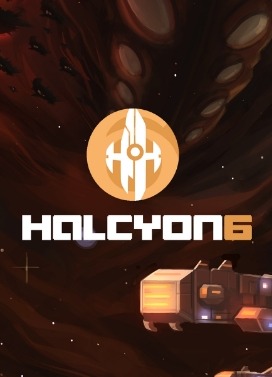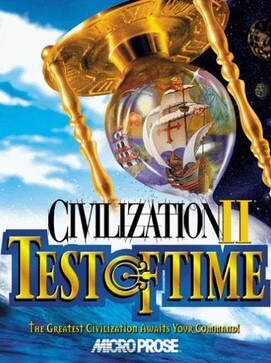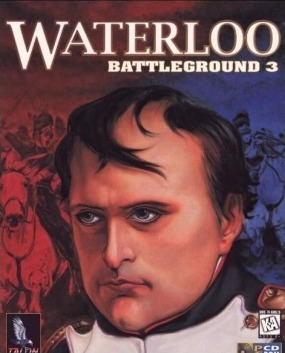Victory can be gained by military or diplomatic means. Major elements of the game's strategy include the design of custom races and the need to balance the requirements for food, production, cash and research. The user interface provides a central screen for most economic management and other screens that control research, diplomacy, ship movement, combat and warship design.
Conquering the Orion star system does not automatically win the game; it merely provides the powerful Avenger starship and some non-researchable Antaran technologies. There are three routes to victory: conquer all opponents; be elected as the supreme leader of the galaxy; or make a successful assault against the Antaran homeworld. To be elected, a player needs two-thirds of the total votes, and each empire's votes are based on the population under its control.
Star systems have at most five colonizable planets, and a few have none. Players can colonize all solid planet types, while gas giants and asteroids can be made habitable with the planet construction technology. Colonizable planets vary in several ways, making some more desirable than others.
The most desirable systems are usually guarded by space monsters, much less powerful than Orion's Guardian but still a challenge in the early game, when fleets are small and low-technology.
Without food, a colony will starve to death. If an empire has an overall food surplus, it can prevent localized starvation by sending food in freighters, which are produced in groups of five and require a small amount of upkeep when in use. However, a single hostile warship of any size can blockade an entire system, preventing the delivery of food.
Each player can change each of its colonies' outputs by moving colonists between farming, industry and research,except that natives can only farm. All normal colonists pay a standard tax to the imperial treasury, and an additional imperial tax may be set causing a corresponding reduction of industrial output on all colonies. Players can use surplus money to accelerate industrial production at specified colonies, but not to increase agricultural or research output.The maintenance of buildings costs money, as does maintaining an excessively large fleet. Ships of different sizes require different numbers of "command points". These are provided by orbital bases, which are major construction projects for small colonies, and communications technology. This severely limits the size of empires' fleets in the early game, where one can have only one frigate (smallest type of ship) per starbase or one battleship (largest type of ship in the early game) per four starbases without having to "buy" command points, which is very expensive.
Research, usually followed by construction of appropriate buildings, can improve all types of productivity, including cashflow and command points, and can reduce or eliminate pollution, Falling behind in technology is likely to be fatal. There are eight research areas divided into several levels, each of which contains one to four technologies. To research a higher-level technology, players must first have researched the previous level. Players can also acquire technologies by exchange or diplomatic threats, spying, hiring colonial leaders or ship commanders with knowledge of certain technologies, planetary conquest, capturing and dismantling enemy ships, random events, or by stumbling upon it in a derelict craft orbiting a newly discovered planet. All weapons and most other combat-related components benefit from miniaturization, in which further advances in the technology area that provides them will reduce the size and production cost of those components. Technological advancements also make available modifications for most weapons, which usually entail a significant increase in their cost and size but can greatly improve their effectiveness in the right situations.
Master of Orion II provides a wide range of diplomatic negotiations: gifts of money or technology or even all the colonies in a star system; opportunities to demand such concessions from other players; technology trades; trade, non-aggression and alliance treaties. The diplomacy menu, called "Races" in the game, also enables the player to allocate spies between defensive duties and spying or sabotage against other empires, and to check opponents' technological progress and diplomatic relationships.
The designs of colony ships, outpost ships and troop transports are fixed. These three ship types can be destroyed instantly by even the weakest combat ship if they travel unescorted. Colony ships, outpost ships, troop transports and warships may benefit from technological advances that increase the range and speed of all of an empire's ships free of charge. Players can design warships, provided they choose the "tactical combat" option in game set-up. A maximum of five classes can be designed at a time, but an indefinite number may be in operation. Players can also refit ships to take advantage of technological improvements not available through free upgrades.
Ships can travel to any star system within their range, unlike games such as Space Empires or Master of Orion III, in which interstellar travel is possible only or mainly via "wormholes" and it is possible to set up easily defended choke points.
In Master of Orion II, space combat occurs only within star systems, either over a planet one side is attacking or on the outskirts of a system, if one side is driving away the other's blockaders or trying to prevent an enemy build-up. If the defending side has warships and several colonies in a system, they automatically scramble to defend whichever colony is attacked. In general, enemy colonies can be taken over only after all orbital and planet-based defenses have been destroyed and all defending ships have been destroyed or forced to retreat. However, a fleet including telepaths will mind-control the colony, unless the defenders also include telepaths. In other cases the only way to seize control of an enemy colony is by invading. In order to do this, the attacking fleet must include some troop transports, which will be lost if the invasion fails, and at least transports will be permanently deployed on the planet if the invasion succeeds. A player cannot control ground combat: the result depends on numbers, ground combat technologies, racial ground combat bonuses, and some Leaders if present. However the game displays the progress of the combat and the ground combat technologies and bonuses used by each side. Mind-controlled colonies are instantly loyal to their new owners. Other recently occupied colonies on the other hand are disaffected, have poor productivity, and may rebel and rejoin the empire which founded them. Productivity slowly improves and the risk of rebellion slowly recedes, and there is a way to speed up these improvements. Instead of invading, a victorious attacker may destroy an enemy colony by various means.
